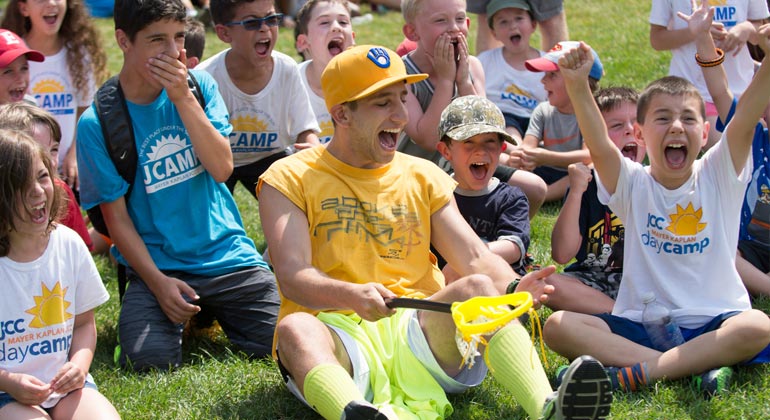Empowering Our Kids to Stand-Up to Bullying

Here’s how to bring our camp philosophy home.
It seems that every time we turn on the tv there is a story about bullying. While bullying is not a new phenomenon, the media’s coverage of tragic incidents has brought the subject front and center. It’s created an urgency to figure out how to “solve” a problem that has pervaded the nation’s schools, playgrounds and, unfortunately, even camps.
October is National Bullying Prevention Awareness Month. Organizations across the country are holding seminars, meetings and days of action to help put a stop to bullying. As day camp directors, bullying prevention is on our minds all of the time. Our approach is similar to that of many schools, but we are in a unique position of influence because of our focus on kids’ social development.
Not All Mean Behavior is Bullying
Bullying is aggressive behavior by a child or group of children who take advantage of the power they have to hurt or intimidate others. It is deliberate and repeated. It may be verbal abuse (mocking, name calling, threatening remarks) physical abuse (hitting, pushing), social rejection (excluding) or humiliation. There are differences between teasing, rudeness and bullying.
We Take Bullying Seriously
Most kids see camp as a safe haven, a place where they can leave behind the stress and pressure often experienced at school. We take that vision seriously. Every counselor and staff member is responsible for creating and maintaining an inclusive, caring and supportive environment at camp. There is no room for bullies at our camps.
Create the Right Environment
To create a bully-free environment, we start by nurturing relationships between campers and counselors, so kids always feel like they have an adult they can trust and confide in. We also emphasize peer relationships, modeling respectful behavior and praising acts of kindness. We talk to campers about their feelings and, most importantly, we listen.
Prepare and Act
We train our staff to recognize bullying and look for key warning signs that bullied campers may reveal. We carefully watch those campers most at-risk and we intervene immediately to stop bullying behaviors. There is no expectation that children will “work out” the situation. Bullying is not conflict resolution; it is an abuse of power.
Build Confidence
Bullying flourishes when the group stays silent. One of the greatest deterrents to bullying is to empower kids to stand up against the bullying behavior. We know this is not easy to do. So, we tell kids that it’s “OK” to stand up for yourself, to walk away from a situation or to ask for help if a bully bothers them. We talk about what it means to be a good friend and a good upstander—someone who doesn’t just “stand by,” watching, laughing or joining in when someone is being bullied. If children can be courageous, the cycle can often be broken.
It Takes a Village
Parents often ask what they can do at home to reinforce what is happening at camp. Here are a few suggestions:
- Teach your child the importance of empathy. A child who is able to understand what it may feel like to be bullied, and can understand and regulate his own emotions, is less likely to bully a child and more likely to be courageous when others are bullied.
- Be a good example of kindness and leadership. Your kids learn a lot about relationships from watching you. Any time you speak to another person in a hurtful or abusive way, you’re teaching your child that bullying is ok.
- Create healthy anti-bullying habits as early as kindergarten. Coach your children on what not to do—hitting, pushing, teasing, and being mean to others. And, if not more importantly, teach your children what to do—kindness, empathy, fair play, and turn-taking are critical skills for good peer relations.
- Set the standard. Tell your kids in no uncertain terms that it’s not normal, okay, or tolerable for them to bully, to be bullied, or to stand by and watch other kids be bullied.
- Learn the signs. If you suspect that your child might be bullied at camp, please call us immediately. Together we can address the problem.
We know that all of this is easier said than done. Our hope is that as parents and camp directors working together, we can create a generation of kids who have the fortitude and resilience, what some have been calling “grit,” to stop and stand-up to bullying.
We’re already looking forward to helping to nurture kind friends, positive leaders and gracious participants during the upcoming summer.







